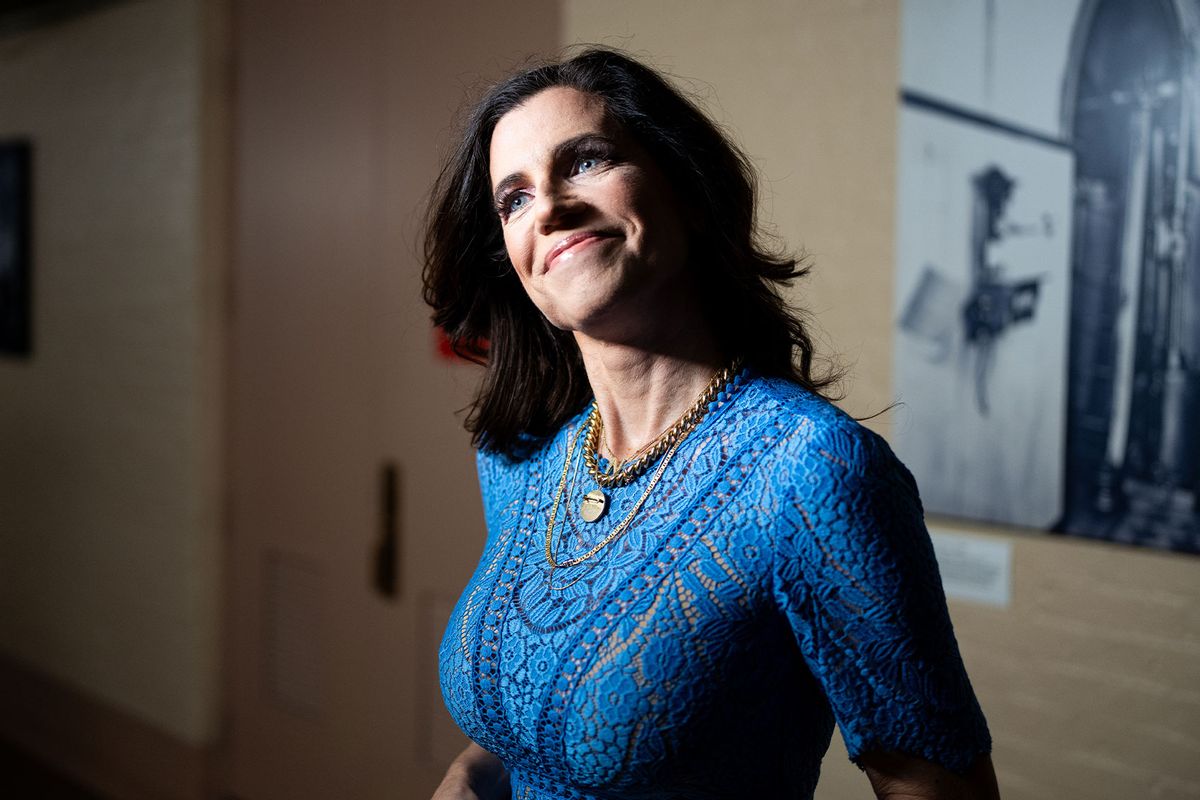Wanjiru Mambo Mutethia, founder of Wedgehut Foods
In Kenya, Wedgehut Foods processes a daily volume of up to six tonnes of fresh potatoes into products like french fries. The company was established in 2021 by Wanjiru Mambo Mutethia. In our interview, Wanjiru shares her journey of capitalising on a gap that emerged in the market.
In early 2020, Wanjiru Mambo Mutethia and a group of friends were running an upmarket restaurant in Nairobi, when the directive came from the Kenyan health ministry that all eateries had to close to curb the spread of Covid-19.
For the serial entrepreneur, it was a hard blow. “It became so uncertain,” she remembers.
The team allocated the fresh produce and ingredients that the restaurant had in stock among themselves to avoid waste. Wanjiru ended up selling several leftover bags of potatoes in her neighbourhood. Driven by fear of what the pandemic could bring, the potatoes were quickly bought at a favourable price during a bout of panic buying. Seizing this opportunity, Wanjiru procured additional bags and sold them to eager buyers in her community.
“That’s when I thought: what else can you do with potatoes to add value to them,” she says.
Upon reaching out to a friend who ran a potato processing business, she discovered he was closing due to cash flow difficulties. Nevertheless, he was open to selling her his machinery and renting out the building where the equipment was already installed.
Wanjiru took the leap; she negotiated a fair rental agreement and a payment plan for the machinery. With these elements in place, she delved into research on the potential market for processed potatoes within the country. She hired a consultant to draft a business plan with financial projections. By April 2021, Wedgehut Foods commenced production.
Early challenges
Wanjiru, with her background in marketing and accounting, initially found it challenging to get to grips with the complexities of food science and production. “I remember one thing that caught me off guard. We were planning our packaging when we found out that the bags had to be approved by the Kenyan Ministry of Environment, Climate Change and Forestry. I was learning on the go.”
Another hurdle was how to perform quality control at the supply level. During the first month of production, many potatoes purchased from farmers were wasted in the factory, as their quality was not suitable for processing.
Wanjiru also faced the task of establishing trust in the fast-moving consumer goods sector, a field where “people first test you on something small before wanting a bigger association”.
“Initially I had to work extra hard to get clients to believe in me,” she says.
An ongoing challenge, present from day one, has been maintaining sufficient working capital. Wedgehut would receive orders but lack the necessary funds to purchase raw materials. While farmers demanded cash payments, retailers sought to buy on credit.
Wanjiru had only secured a small loan from her husband and received some funds from a group of female friends who had pooled their money, a practice known as chamas in Kenya. It was a balancing act in the beginning. “In retrospect, I would do it differently, I would be very clear on credit terms and securing cash clients, but we were desperate to get our first orders, so you do anything.”
Building a client base
Wanjiru concedes that luck also played a part. It didn’t take long for Wedgehut’s products to make their way into their first major retail store. A recommendation from a friend with connections at the retail chain led to three of its branches stocking the potatoes.
“It was a good entry point. The branches’ previous supplier closed down during the pandemic, so I had to capitalise on the gap that was left,” she says.
Wanjiru took to networking, joining groups and forums with a focus on food and value addition, and fostered relationships within the hospitality industry. Her efforts paid off – the company extended its reach into more branches of the first retailer, while other supermarket brands, smaller restaurants, hotels, and caterers began purchasing from Wedgehut.
Wedgehut Foods’ processing facility
Products and processing
Wedgehut produces seven products: french fries, potato wedges, whole cleaned potatoes, lyonnaise potatoes, potato on the skin, shredded potato (used for mash and soup) and potato cubes.
It sources different varieties of potatoes from approximately 400 contracted farmers. Upon arrival at the factory, the potatoes are sorted by size to match the cuts required for the final product.
The potatoes initially enter an automated electric peeling machine before passing through the de-eyeing section to remove any remaining black spots. Following this, they are sorted once again, directing all the large potatoes towards french fries production. The potatoes undergo thorough cleaning to eliminate excess starch, a crucial step to prevent bad odour after packaging. Finally, they are dried and vacuum-packed.
“We do not freeze the products, if you want to do that there is a different process that needs to be followed which includes blanching the potatoes, so we pack and deliver immediately,” says Wanjiru.
Wedgehut employees work three shifts around the clock.
From farm to fries: navigating agricultural challenges
Wanjiru asserts that all potatoes are not made equal. The struggle to source the correct variety and guarantee a consistent supply of high-quality produce persists.
Utilising a primary agricultural product means the business is subject to the same environmental issues that farmers encounter, like droughts.
Sixty per cent of all the potatoes sourced by Wedgehut must be large in size, as there is a preference in Kenya for longer cuts of french fries. The company procures the Markies, Shangi, Manitou, and Unica varieties for production. Wedgehut sets a floor price with its contracted farmers, ensuring a minimum price even if market rates plunge.
The company is seeking to incorporate more irrigated farms to enhance the security of its supply chain. Furthermore, it is collaborating with various stakeholders – including the government, Equity Bank, Syngenta and other seed suppliers – to improve the output of potato farmers.
“We are hoping, with these interventions, that the challenges in supply will soon be a thing of the past.”
Transforming waste into potato flour
French fries reign supreme in Wedgehut’s product lineup, according to Wanjiru. “People in urban centres love french fries at any time. It’s definitely our best-seller.”
Looking ahead, Wedgehut plans to expand into the production of potato flour. This will enable the company to reduce waste, which currently stands at 15%, and make efficient use of all sourced potatoes, even the smaller ones.
“These ‘waste’ potatoes can be crushed and processed into a powder. If we fortify it a bit more, it is perfect as a ready meal. Just add water and you have mashed potato,” notes Wanjiru. A potential market for this product could be the non-profit sector engaged in hunger relief efforts across the continent.
Balancing credit and cash
Currently, Wedgehut is concentrating on expanding its customer base within the hospitality industry, which consumes a large amount of potato products.
“We have, however, found that many of the large hotels require credit arrangements, which is not favourable to us. To balance it out, we have asked our sales team to actively find cash clients, small restaurants for example, that can offset the impact,” says Wanjiru.
While these smaller clients don’t consume as much as large hotels, purchasing only around 10kg to 20kg per day, their cash payments boost working capital, enabling Wedgehut to easily cover smaller expenses like fuel.
“We want to have 40% of our entire customer base as cash and only 60% credit. This will make Wedgehut sustainable and free us from the risk of having to resort to expensive loans during a cash crisis.”
Growth plans
Wedgehut has set three goals as part of a three-year strategy: develop potato flour as a product, expand its market to the UAE, and collaborate with contracted farmers to implement crop rotation for improved soil conditions.
“We are asking our existing clients what other processed produce they may need to secure an off-take for these rotational crops, such as peas or cabbage.” These crops would be planted following a potato harvest, allowing the soil to recover before another crop of potatoes is sown the following year. The plan also involves Wedgehut purchasing these additional harvests from the farmers. This increase in produce would necessitate expanding the current production facility, which is also part of the plan.
In addition, Wanjiru is actively seeking strategic investment partners to help grow the business. “There is, for example, a huge demand for Kenyan potatoes from the UAE and we are more than open to discussions with potential partners to make this happen.”



















Discussion about this post